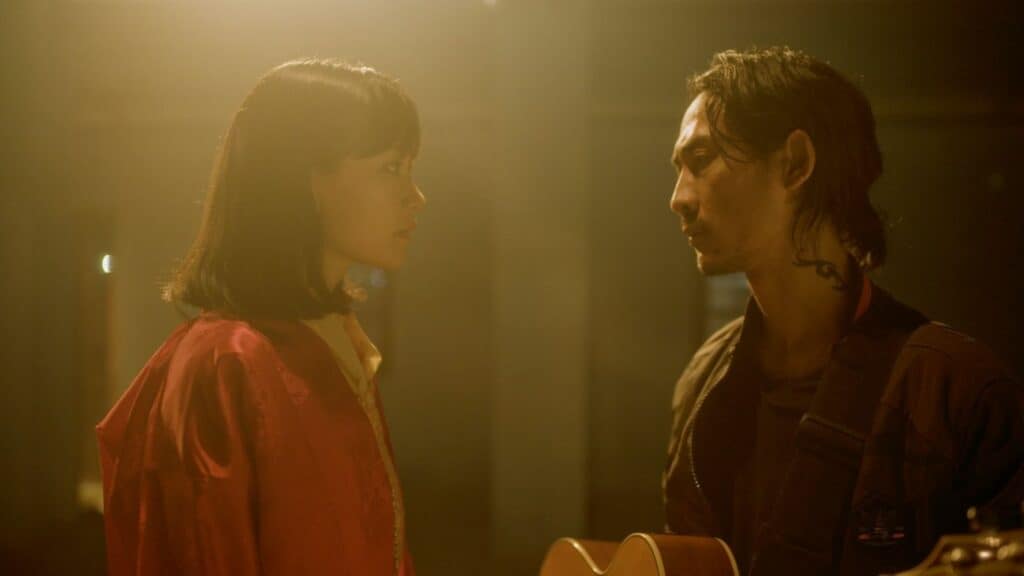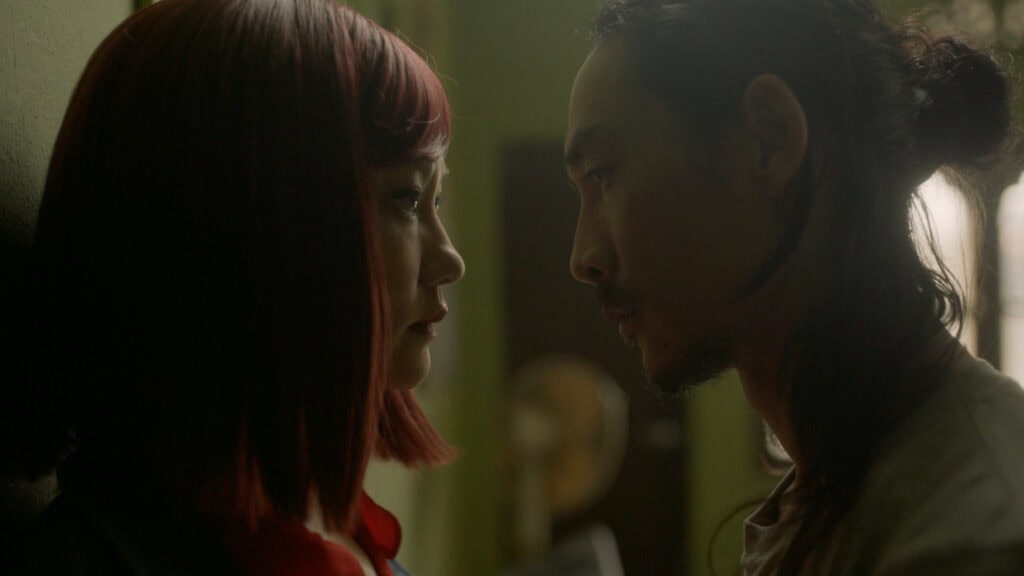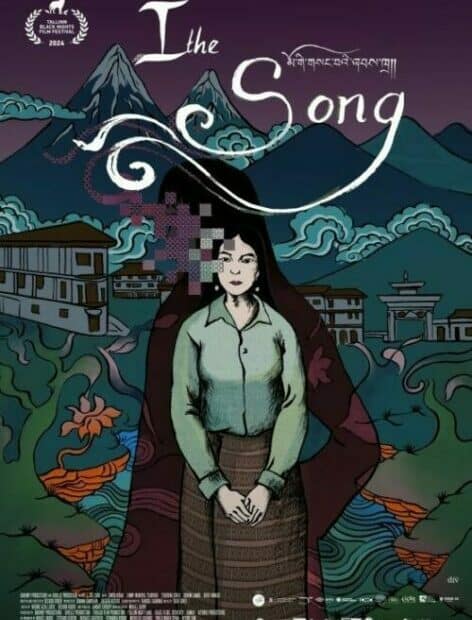I, the Song is the sophomore feature by Dechen Roder, following Honeygiver Among the Dogs (2016), which had its European premiere at the Berlinale in 2017. It’s a film that has been ringing (singing?) in my head ever since, and I’ve been wondering what happened to the director. I was happy to learn that her second film would be screened at the Black Nights Film Festival, even though the choice of section, Critics’ Picks, was cause for concern. The debut film had some noir elements, but it was far from a genre film, so given the comments by the section curator, I was not sure what to expect.
I, the Song begins in a school where children are singing. Suddenly, a teacher, Nima (Tandin Bidha), is summoned into the principal’s office. Once there, she is confronted with a sex video circulating online where she seems to be one of the participants. She is fired even though she assures the principal that it is not her in the video. Even her boyfriend, Penjor, is sure that she is the woman depicted. After jumping through some hoops, Nima manages to watch the video herself. She notices some anomalies, such as a mole on the woman’s cheek (meaning the one on her face). Penjor is still not convinced. A Blow-Up of the picture reveals a hotel bar named Jewel in Gelephu.

All We Imagine as I, the Song
Nima decides to head off to Gelephu. Once there, she notices people staring at her and whispering. On entering the aforementioned bar, she is greeted as “Meto”. A helpful person tells her that Meto (also Bidha) has disappeared but suggests she go to the Moon Bar, where her ex, Tandin, can be found. He turns out to be a musician but doesn’t know where Meto is. Later, Nima goes to his place for tea. He tells the story of how he met Nima’s doppelgänger during an audition. Here, the film starts utilising flashbacks, and the spectator sees a woman with a different haircut than Nima in a red dress. From here on, the film becomes increasingly mystical.
When I interviewed the director, she said the film was loosely inspired by The Double Life of Véronique and Suzhou River. On the other hand, she stated that she hadn’t seen Vertigo. With all those references in mind, this is a highly personal work steeped in the Bhutanese culture. As the title suggests, songs are essential to the film. At one point during our conversation, the director suggested that “all our lives are actually songs that can never be contained”. An idea not that far removed from Alain Resnais’ in his masterful film, On connait la chanson (1997). The musical styles in I, the Song span from Dzongkha songs to more recent popular music.

All We Imagine as Sound
I do not want to go into details about how the film continues, and that is not for the dreaded “spoiler” reason. (for instance, I haven’t even mentioned the storyline revolving around a stolen song, which will play a pivotal part in Nima’s development). This is a work which takes its time exploring the two female characters as well as what might be a liminal space. I often say that favourite films are the most difficult to describe. When I try to outline I, the Song, it is impossible not to think of similar films that failed miserably while attempting to create something similar to this.
In lesser hands, this film could have gone wrong in so many ways, but the craftsmanship displayed here is dazzling on so many hands. Tandin Bidha is an actress primarily seen in commercial Bhutanese films, but she handles the doppelgänger role in a masterly fashion. Rangoli Agarwal’s cinematography is stunning in its beauty and congenial with the film’s themes. The evocative music is another pillar of this multifaceted work, with the Dzongkha songs sharing the space with more experimental music. One should also mention Mikaël Barre’s sound design, which is simultaneously compelling and subtle. This entire complex weave of sound and images is expertly controlled by director, scriptwriter, and co-producer Dechen Roder.

One of the greatest films of the year
When I interviewed the director, I was struck by the clarity in her answers, even on some of the more inartfully expressed questions. She lives in Bhutan, unlike some other directors who live in Paris and then visit their home countries solely to create a contribution for the next Cannes Festival. There is no exoticism in I, the Song, even though certain elements may seem alien to a European spectator. Even though I liked the film the first time I watched it, this is a work that has grown on me. It wasn’t only the best film in the Critics’ Picks section but also one of the year’s best films.
Hopefully, it doesn’t take eight years until the next Dechen Roder film. I, the Song, won the Award for Best Director in the Critics’ Picks section.
I, the Song by Dechen Roder - The Disapproving Swede Great

Director: Dechen Roder
Date Created: 2025-04-21 17:45
4.25
Pros
- The use of music
- Cinematography
- Sound
Cons
- None
